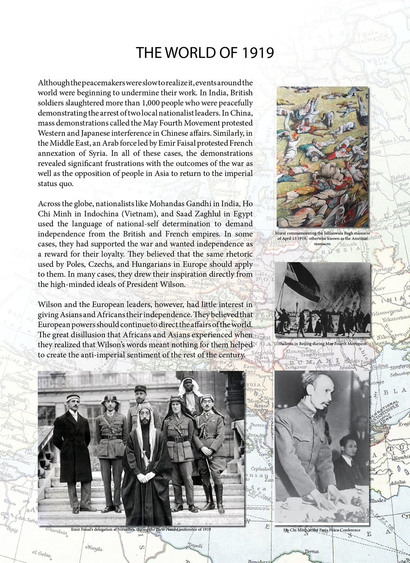The World of 1919
Although the peacemakers were slow to realize it, events around the world were beginning to undermine their work In India, British soldiers slaughtered more than 1,000 people peacefully demonstrating the arrest of two local nationalist leaders. In China, mass demonstrations called the May Fourth Movement protested Western and Japanese interference in Chinese affairs. Similarly, in the Middle East, an Arab force led by Emir Faisal protested French annexation of Syria. In all of these cases, the demonstrations revealed significant frustrations with the outcomes of the war as well as the opposition of people in Asia to return to the imperial status quo ante.
Across the globe, nationalists like Mohandas Gandhi in India, Ho Chi Minh in Indochina (Vietnam), and Saad Zaghlul in Egypt used the language of national-self determination to demand independence from the British and French empires. In some cases, they had supported the war and wanted independence as a reward for their loyalty. They believed that the same rhetoric used by Poles, Czechs, and Hungarians in Europe should apply to them. In many cases, they drew their inspiration directly from the high-minded ideals of President Wilson.
Wilson and the European leaders, however, had little interest in giving Asians and Africans their independence. They believed that European powers should continue to direct the affairs of the world. The great disillusion that Africans and Asians experienced when they realized that Wilson’s words meant nothing for them helped to create the anti-imperial sentiment of the rest of the century.


